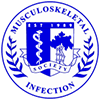Authors: Mortazavi J, Parvizi J, Azzam K, Schwartzenberger J, Sharkey P
Title: Revision Total Knee Arthroplasty ? Infection is the Major Cause of Failure
Institution: Rothman Institute, Philadelphia, PA
Purpose: The objective of this study was to evaluate the impact of infection on survivorship and functional outcome of revision TKA and determine the predictors of septic failure.
Methods: Between January 2000 to December 2005, 556 revision TKAs in 550 patients were performed at our institution. All patients are followed prospectively including completion of subjective forms by the patients, and objective forms filled by the surgeons. The medical and radiographic reports were reviewed to extract the relevant information for this study.
Results: At a minimum follow?up of 2 years, and considering reoperation or re?revision as failure, there have been 102 failures (18.3%). Infection was the major cause of failure (41.6%) followed by stiffness (21.8%), patellar or extensor mechanism problems (8.9%), loosening (6.9%), periprosthetic fracture (6.9%), instability (5.9 %), malalignment (4%), and hematoma formation (4%). The mean time from index revision procedure to the second revision was 418 days (range, 2?3264 days). 83 % of failures were early (less than two years). More than half of early failures were related to infection and arthrofibrosis.
Discussion and Conclusion: Infection followed by stiffness is the most common mechanism of failure in TKA revisions. The majority of infections tend to occur in the first two years after the index revision. The high rate of infection following revision TKA raises serious concerns due to its profound impact on functional outcome. Adherence to strict guidelines during revision knee arthroplasty, with emphasis on excludingexisting indolent infection, may decrease the incidence of infection and improve outcome of revision TKA.

